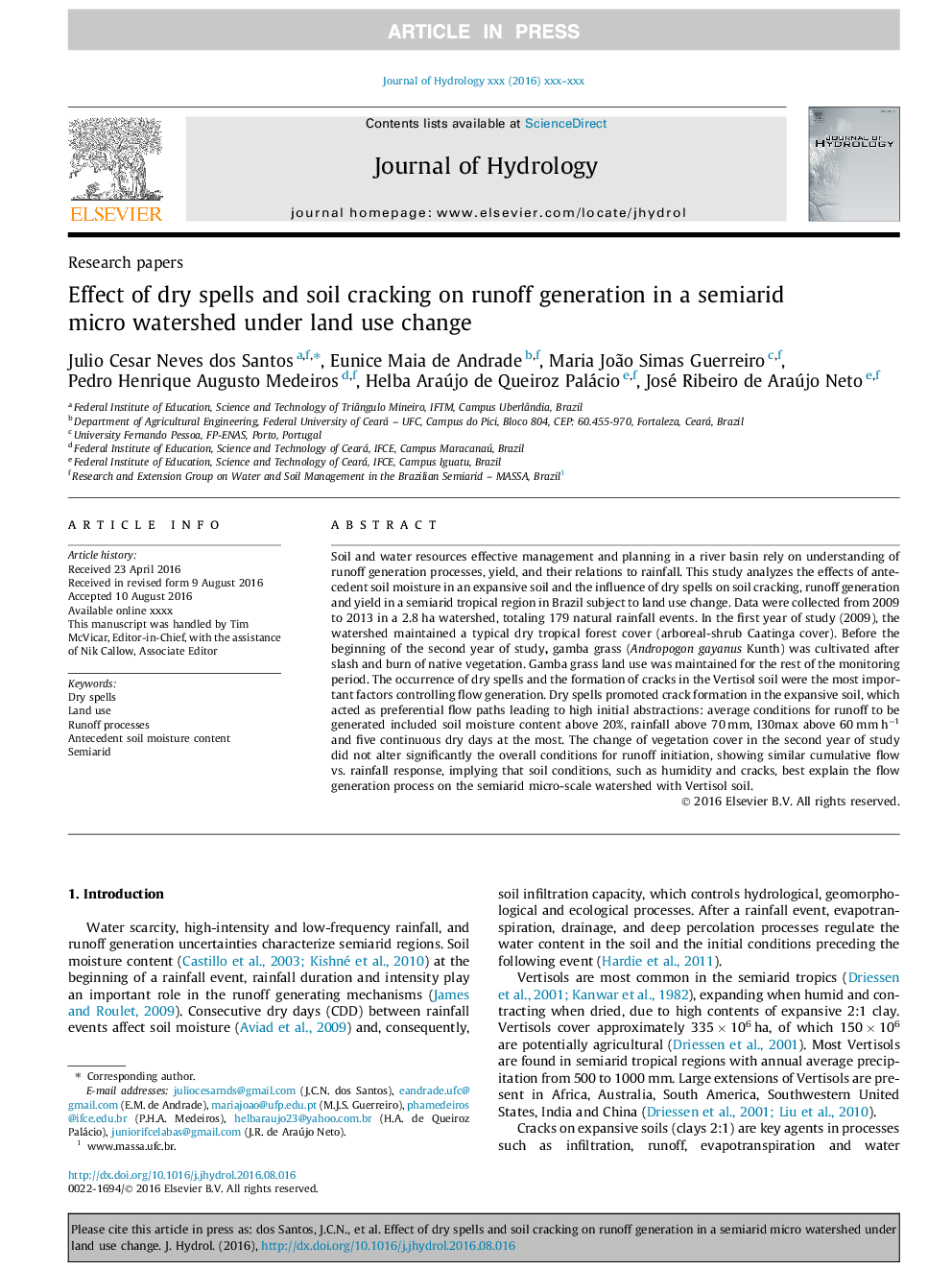| Article ID | Journal | Published Year | Pages | File Type |
|---|---|---|---|---|
| 6409450 | Journal of Hydrology | 2016 | 10 Pages |
Abstract
Soil and water resources effective management and planning in a river basin rely on understanding of runoff generation processes, yield, and their relations to rainfall. This study analyzes the effects of antecedent soil moisture in an expansive soil and the influence of dry spells on soil cracking, runoff generation and yield in a semiarid tropical region in Brazil subject to land use change. Data were collected from 2009 to 2013 in a 2.8 ha watershed, totaling 179 natural rainfall events. In the first year of study (2009), the watershed maintained a typical dry tropical forest cover (arboreal-shrub Caatinga cover). Before the beginning of the second year of study, gamba grass (Andropogon gayanus Kunth) was cultivated after slash and burn of native vegetation. Gamba grass land use was maintained for the rest of the monitoring period. The occurrence of dry spells and the formation of cracks in the Vertisol soil were the most important factors controlling flow generation. Dry spells promoted crack formation in the expansive soil, which acted as preferential flow paths leading to high initial abstractions: average conditions for runoff to be generated included soil moisture content above 20%, rainfall above 70 mm, I30max above 60 mm hâ1 and five continuous dry days at the most. The change of vegetation cover in the second year of study did not alter significantly the overall conditions for runoff initiation, showing similar cumulative flow vs. rainfall response, implying that soil conditions, such as humidity and cracks, best explain the flow generation process on the semiarid micro-scale watershed with Vertisol soil.
Related Topics
Physical Sciences and Engineering
Earth and Planetary Sciences
Earth-Surface Processes
Authors
Julio Cesar Neves dos Santos, Eunice Maia de Andrade, Maria João Simas Guerreiro, Pedro Henrique Augusto Medeiros, Helba Araújo de Queiroz Palácio, José Ribeiro de Araújo Neto,
